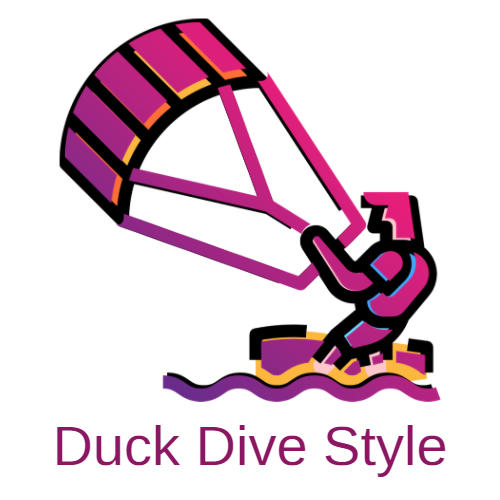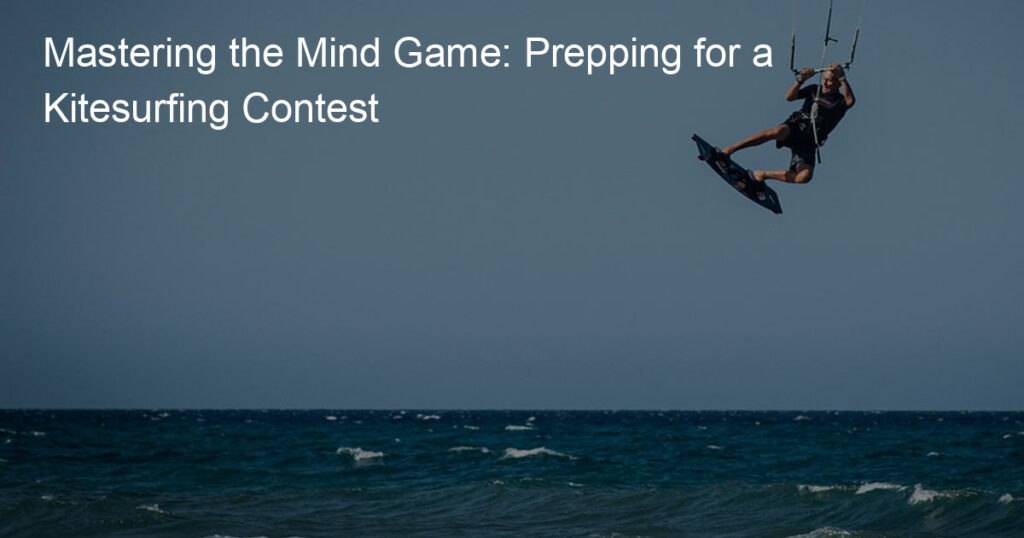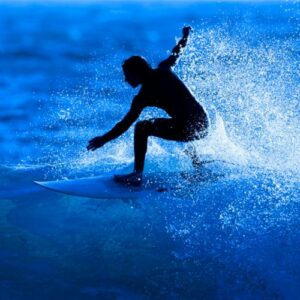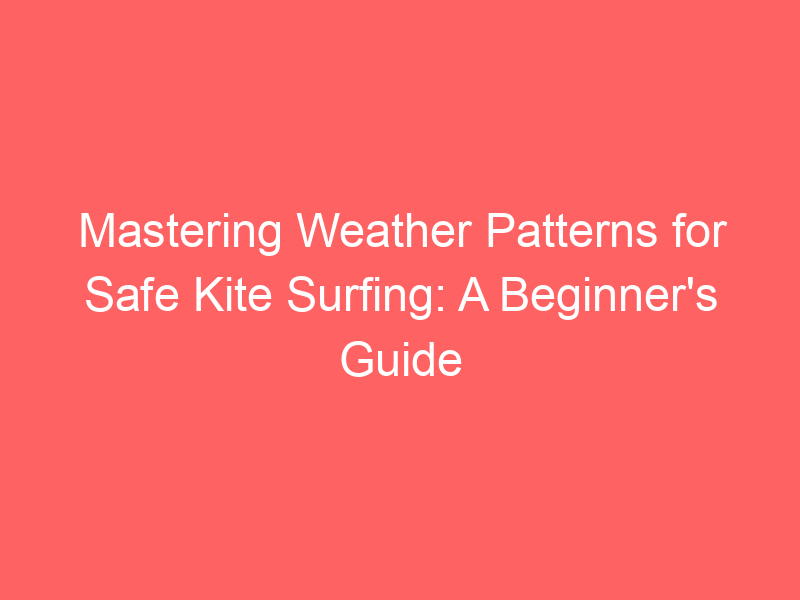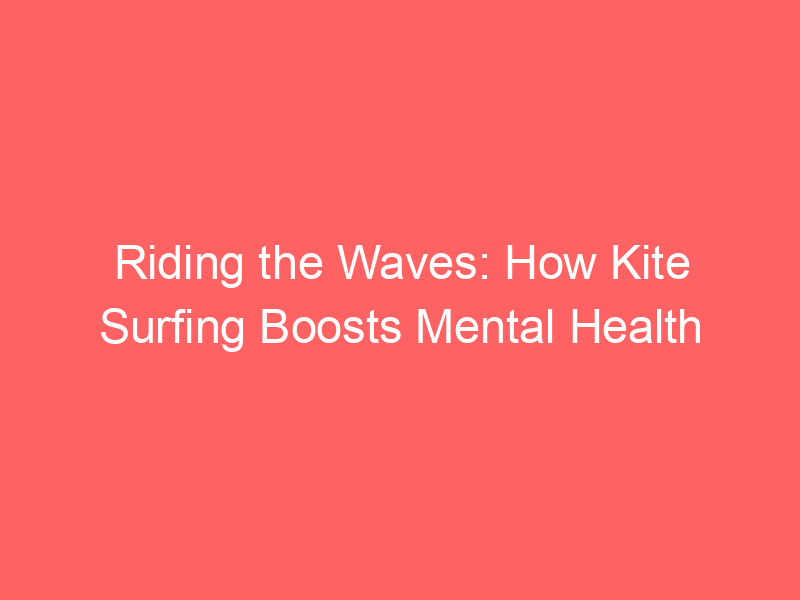Introduction to Kitesurfing Competition Preparation
As a surfer, you may already be familiar with the thrill of riding the waves. But have you ever tried kitesurfing? This exhilarating sport combines elements of surfing, windsurfing, paragliding, and gymnastics into one extreme water sport. And like any other sport, preparing for a kitesurfing competition requires not just physical readiness, but also a strong mental game. In this section, we will delve into the importance of mental preparation for kitesurfing and provide an overview of the kitesurfing mindset.
- Understanding the importance of mental preparation for kitesurfing
- Overview of the kitesurfing mindset
Just like any other sport, kitesurfing is as much a mental game as it is a physical one. The ability to stay calm under pressure, to make quick decisions, and to maintain focus amidst the chaos of the waves and wind is crucial. Mental preparation can help improve performance, reduce stress and anxiety, and increase confidence. According to a study from the University of Chicago, athletes who mentally rehearse their performance can enhance their actual performance during the competition. This is why mental preparation is a key component of kitesurfing competition preparation.
The kitesurfing mindset is all about embracing challenges, staying focused, and being in the moment. It’s about understanding that every wave is different and that you need to adapt quickly to changing conditions. It’s about respecting the power of the ocean and knowing your limits. But most importantly, it’s about having fun and enjoying the ride. As professional kitesurfer Rob Douglas once said, “Kitesurfing is not just about winning competitions, it’s about having fun and enjoying the freedom of the ocean.”
Mental Training for Surfers
Just as physical training is crucial for kitesurfing, mental training is equally important. It helps surfers build resilience, manage anxiety, and improve their performance. This section will explore various techniques and strategies for building mental strength in kitesurfing.
Building Mental Strength for Kitesurfing
- Techniques for developing mental resilience: Mental resilience can be built by setting achievable goals, maintaining a positive attitude, and practicing stress management techniques such as deep breathing and progressive muscle relaxation.
- Case study: Successful surfers with strong mental strength: Many successful surfers, such as Kelly Slater and Mick Fanning, attribute their success to mental strength. They emphasize the importance of maintaining focus, staying calm under pressure, and being adaptable.
- Recognizing signs of competition anxiety: Common signs of competition anxiety include increased heart rate, excessive sweating, and negative thoughts. Recognizing these signs is the first step towards managing them.
- Effective strategies to manage and reduce anxiety: Techniques such as visualization, mindfulness, and deep breathing can help manage and reduce anxiety.
- Importance of physical fitness in kitesurfing: Physical fitness not only enhances performance but also helps in managing stress and anxiety. Regular exercise, balanced diet, and adequate sleep are essential for physical fitness.
- Recommended exercises and training routines for kitesurfers: Exercises such as swimming, running, and strength training can help improve endurance and strength. Yoga and Pilates can enhance flexibility and balance.
- Role of visualization in kitesurfing training: Visualization involves picturing yourself successfully performing a task. It can enhance confidence and performance in kitesurfing.
- Practicing mindfulness and meditation for better focus: Mindfulness and meditation can help improve focus and concentration, reduce stress, and enhance overall performance.
- Planning your ride: Key considerations: Planning your ride involves considering factors such as weather conditions, wave patterns, and safety measures.
- Adapting to changing weather and wave conditions: Being adaptable and flexible is crucial in kitesurfing as weather and wave conditions can change rapidly.
- Establishing a pre-competition routine to boost confidence: A pre-competition routine can include mental preparation, warm-up exercises, and visualization techniques.
- Examples of effective pre-competition routines from top surfers: Top surfers often have unique pre-competition routines. For example, Kelly Slater practices yoga and meditation, while Mick Fanning listens to music to boost his confidence.
- Importance of reflecting on performance post-competition: Reflecting on your performance can help identify strengths and areas for improvement. It can also provide insights for future competitions.
- How to use reflection for improvement in future competitions: Reflection can be used to set new goals, develop strategies for improvement, and enhance mental resilience.
- Top tips from professional kitesurfers: Professional kitesurfers often emphasize the importance of mental preparation, regular practice, and continuous learning.
- Common mistakes to avoid in kitesurfing competitions: Common mistakes include lack of preparation, negative thinking, and not adapting to changing conditions.
- Recap of key takeaways for mental preparation in kitesurfing: Mental preparation involves building mental resilience, managing anxiety, planning your ride, and reflecting on performance.
- Final words of encouragement for aspiring competitive kitesurfers: Kitesurfing is a challenging yet rewarding sport. With the right mental and physical preparation, you can excel in this sport and enjoy the thrill it offers.
